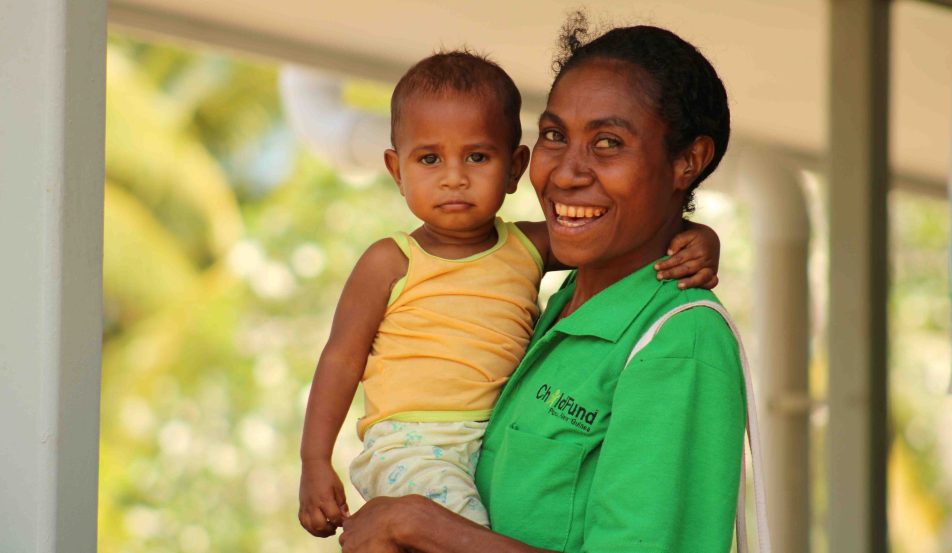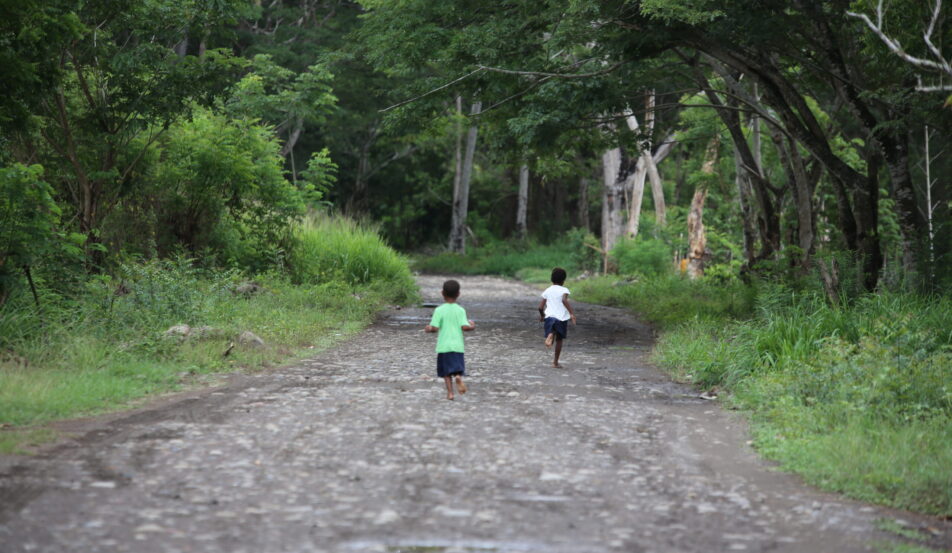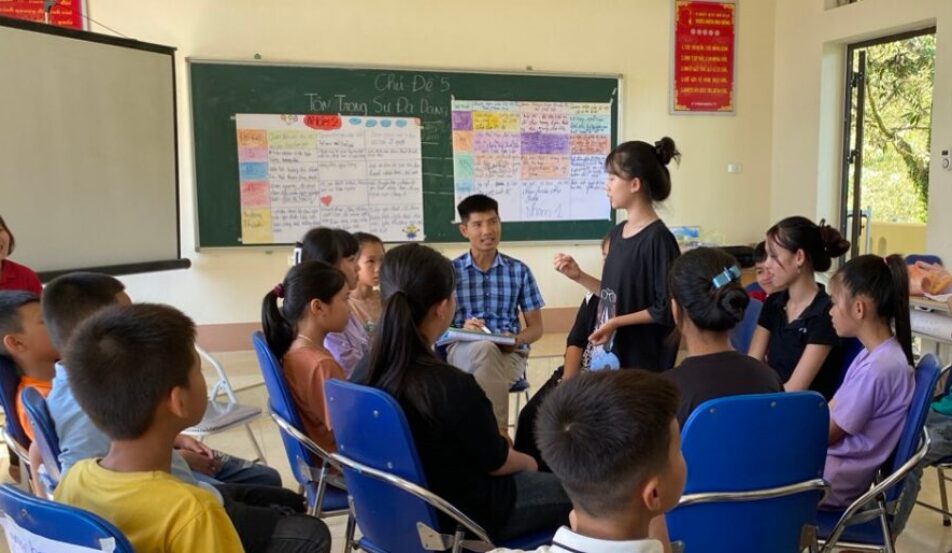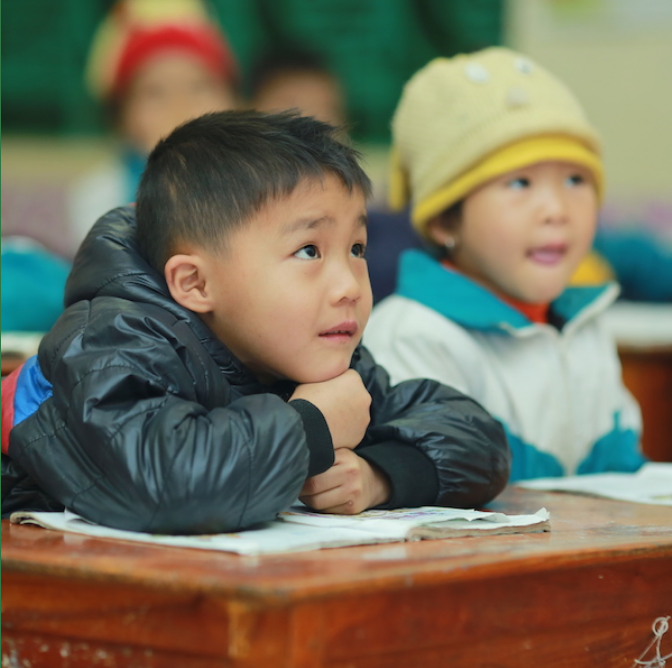A stark reminder of the life-changing impact of simple things
ChildFund Australia Global Programs Director Sarah Hunt shares how a recent trip to Zambia and Kenya was a stark reminder of how simple things like food, clean water, and health care can have a profound impact on children’s lives.

I’ve often seen the impact that both poverty and development can have on children and families, but during my recent trip to Kenya and Zambia there were a couple of things that stood out: flushing toilets in communities, which showed how far we’ve come; and children on the side of the road, desperate for water, which showed how much we still need to do.
“We encountered young children asking for water. These children, had been out all day in the hot sun, searching for water for what livestock they still had left.”
Together, with colleagues from the ChildFund Kenya team, we were several hours north of the capital, Nairobi, driving through pastoralist communities, when we encountered young children asking for water. These children, had been out all day in the hot sun, searching for water for what livestock they still had left.
It was a stark reminder of what happens to children when the impacts of poverty are compounded by crises or disaster such as severe drought.
Health volunteers help to reduce maternal and child deaths in remote communities
I’ve been with ChildFund Australia for 15 years and held several different program roles during this period. The first time I travelled to Zambia and Kenya was between 2005 to 2008, as ChildFund’s Africa Program Coordinator. At the time, a key focus was supporting children – many of whom were orphans – impacted by HIV/AIDS.
Today, we work closely with local partners to implement a range of projects in both countries, from health and education to child protection. We also respond to emergencies such as the ongoing drought in the Horn of Africa.

Over the years I’ve noticed that level of investment in infrastructure has increased, but it’s only really obvious in urban areas and especially the capital cities. In remote communities, clean water and health care facilities are still inadequate, and far and few between.
In Zambia, I visited a health centre that the local partner – Chibombo Child Development Agency – began building in 2015 with support from ChildFund. The centre is about an hour and a half away from the capital, Lusaka, and services a remote community of about 8,000 people. It had new housing for staff, and a post-natal bay for mothers and their newborn babies.
The health centre provides community members with basic healthcare but if someone is seriously ill, or there are complications with a pregnancy, they need to be referred to a hospital 30kms away – the next closest health facility. To get there, most families need to find someone who has a motorbike who will take them all the way, or to the main road, where they will need to find alternative transport to the hospital.
It was inspiring to see the passion and ambition of the health centre staff. They showed me a 20-year roadmap of everything they wanted to build. It included dentistry and radiology rooms, and an operating theatre. The hope is to one day be able to provide patients with a full suite of health services at the centre.
The outreach work of the different community health volunteers was impressive. These volunteers are so important to the community and fill the service gaps of the health centre. They provide antenatal and postnatal support to mothers, and monitor the development and growth of young children. They are key to preventing child malnutrition and common childhood diseases.
The volunteers shared that the health outreach work they were doing was helping to reduce the number of maternal and child deaths in the community.
Girls need to be in school. Period.
I also visited a school supported by ChildFund Zambia. I’ve seen lots of water and sanitation facilities over the past 15 years, but it was at this school in Kafue District in Zambia that, for the first time I saw a school with flushing toilets. Previously I’d only ever seen pit latrines for students and teachers to use.
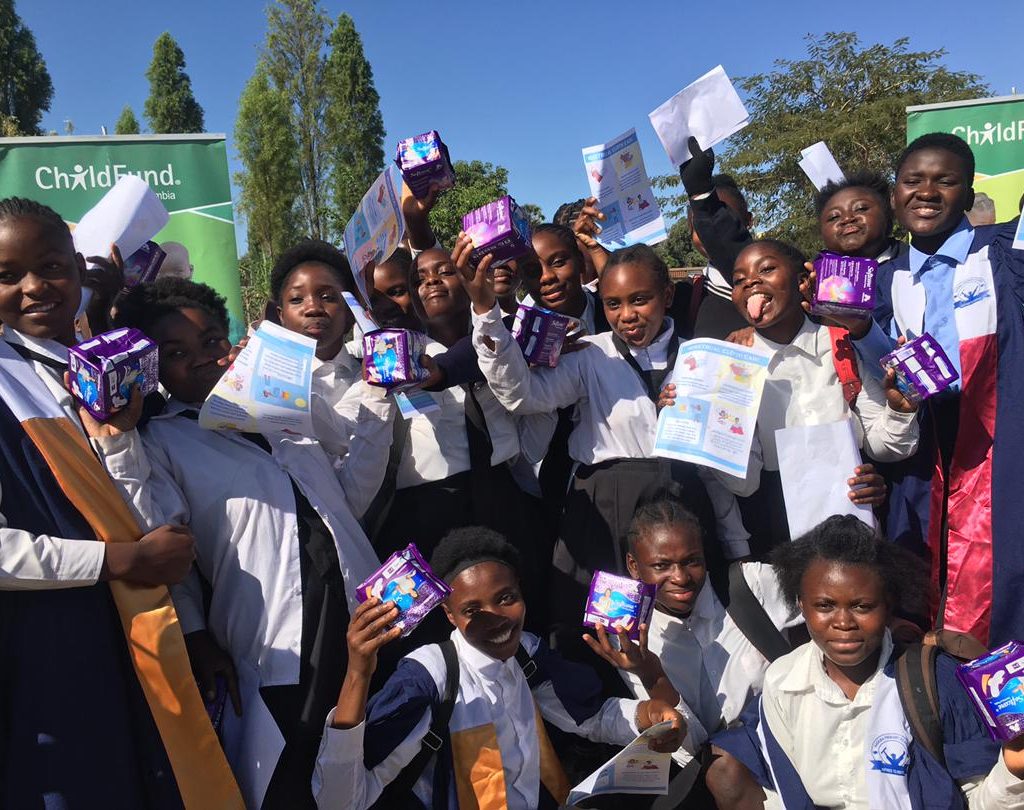
It is the school’s activities around menstrual hygiene, that are really making a difference to the lives of girls and young women.
Many families in the community cannot afford menstrual hygiene products, so girls often stay at home when they have their period. Some girls and young women engage in risky behaviour to afford them; they’re either doing cheap domestic labour to be able to save a bit of money on the weekends or after school to buy the products, or they’re engaging in relationships with older men, who will buy the products for them.
There’s also a lot of stigma and taboo associated with periods. Part of the issue is not being able to afford products, but there’s also a sense of embarrassment around menstruation. Together with their local partner, the Kafue Child Development Association, ChildFund Zambia is working with families and communities to change these harmful perceptions and attitudes.
The school I visited is also providing girls with sanitary pads and has built proper waste disposal facilities for these products. This has been critical to keeping girls in school.
Clean water, at last
Pastoral communities in Turkana and Marsabit counties in Kenya have faced the crippling impacts of the longest, and most severe and widespread drought in the country in a decade. More than 4 million people in Kenya have been affected by the drought, which is driving alarming levels of food scarcity, and malnutrition for children and women.
“Simple things like not having enough food or water at home can prevent children from accessing an education.”
When we encountered those children on the side of the road, desperate for water, we handed out bottles of drinking water where we could. But this was a short-term solution to a very big, complex problem.

At our destination in Marsarbit county, I saw how local partners and ChildFund, with generous support from the Australian public, had helped to rehabilitate a clean water system in a community severely impacted by the drought. The team was also helping to provide children in early childhood centres with supplementary food. During the drought, these activities enabled children – who would have otherwise had to search for food and water during the day – stay in school.
Simple things like not having enough food or water at home can prevent children from accessing an education.































